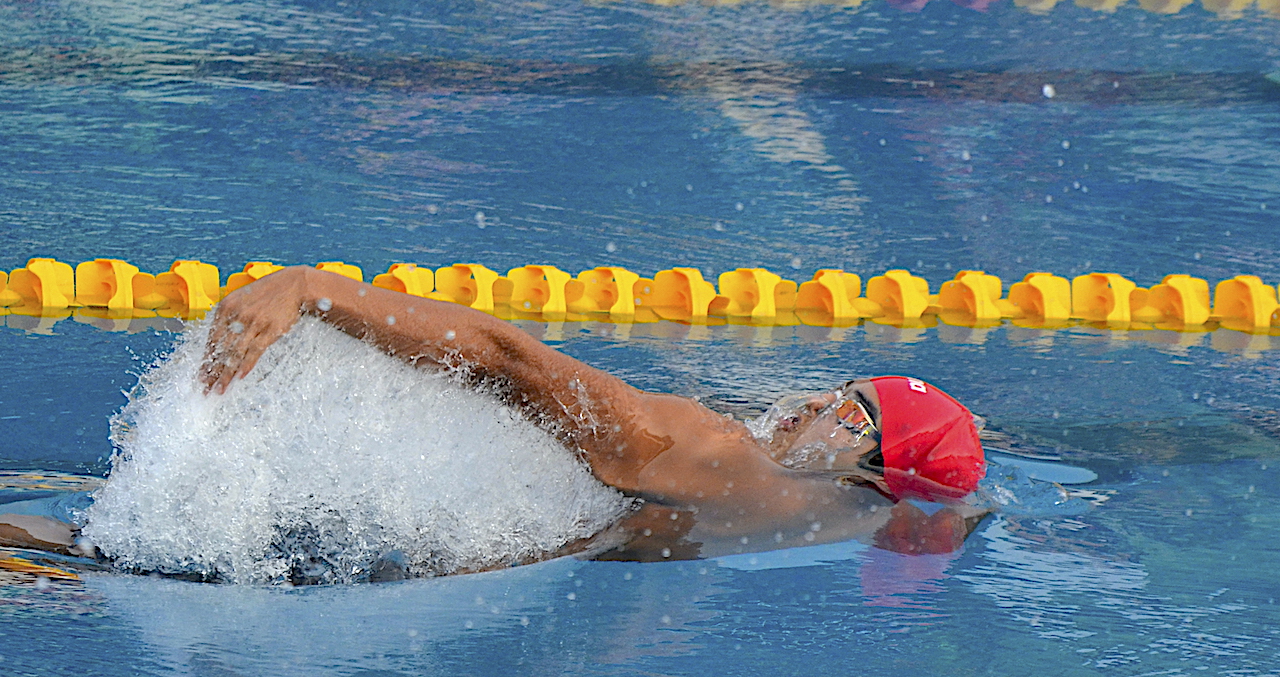The Swimming Federation of India, at long last, has set its sights on the preparation for the 2022 Asian Games to be held from September 10 to 25 in Hangzhou, China. It has announced its intentions of hosting a five-month long national camp from January 4 next, taking the cream of India’s swimmers to Bengaluru, Antalya in Turkey and Pretoria in South Africa.
It has proposed a six-week conditioning and selection camp in Bengaluru would the starting point for a large group. A chosen bunch would be in Antalya for a fortnight in a technique assessment camp with the world-renowned biomechanics expert Stefano Nurra in the Gloria High Performance Center before moving base to the University of Pretoria for three months.
For good measure, SFI has planned to give the swimmers competitive exposure as well, including in three events where Olympic qualification can be pursued. At the moment, India has six swimmers who have secured Olympic Selection Time (popularly called B Time) and are aiming for the tougher Olympic Qualification Times (A Time) that guarantees participation in Tokyo.
If any swimmer becomes the first Indian to breach the A Time, he or she may travel to Europe for the Mare Nostrum Series while the rest will return home and compete in the National Championships. Such a plan has taken not a few by surprise, given that Indian swimmers have mostly preferred to train on their own under the eyes of their personal coaches.
There are 14 swimmers in the Target Olympic Podium Scheme Development Group. Of these, Aryan Makhija and Neel Roy are students in the United States of America while Tanish George is based in Dubai. It has to be seen if they will join the proposed National camp.
SFI has got in touch with swimmers based on their performances in 2018 and 2019. And this list could include the experienced Virdhawal Khade and Sajan Prakash, both of whom have secured B Times for the Tokyo Games, as well as Maana Patel, one of India’s best female swimmers, besides a few others.
Then again, the National camp will take off only when two things are in place. The Sports Authority of India has to approve it – and sanction the substantial financial outlay for such a long camp, including nearly three months in overseas locations. The other factor that will determine the success of the idea is the willingness of swimmers to sign up for five months of intense training.
Come to think of it, as recently as a couple of months ago, SFI seriously refuted the thought that age-group swimmers could move ‘lock stock and barrel’ to other States or attend National camps. It will be interesting to see how SFI now overcomes the very hurdle that it proffered as a reason to not conduct national camps for elite swimmers.
With examinations around the corner, it could be tough for some swimmers to attend the camp in Bengaluru and focus on their studies as well. Therefore, some may request SFI to find a way around letting the swimmers join the squad in Antalya or Pretoria rather than attend the conditioning and selection camp in Bengaluru.
Of course, you can expect parents of swimmers and swimmers themselves, if not the officials of the Sports Authority of India, to seek more details about the National camp. Would the swimmers and support staff have to deal go through quarantine periods in Turkey and South Africa? Are bio-bubbles being created to ensure their safety?
For all that, you have to give credit to SFI for its well-intentioned and realistic plan to focus on the Asian Games. Each of the six swimmers who has secured the B Time for Tokyo 2020 – with hope that 878 athletes do not secure A Times – will be the first to admit that an Olympic Games final is a tall order. And that it may help to target improved show in the Asian Games as a logical step.
Besides, a long camp will give SFI and the coaches an opportunity to assess if the women’s relay squads can be honed into at least making the final of the Asian Games events. These milestones will be necessary for swimming to stay relevant as a competitive sport in the country at a time when youngsters have more than one sport to choose from.
India’s record in the Asian Games swimming is not much to write home about. After making a splash in the inaugural edition in Delhi in 1951, Indian swimmers have succeeded in winning but three medals in the continental sporting extravaganza. We can keep talking about rich hauls in Asian Age-Group competitions but that has not converted to success at the senior level.
With scientific and methodical training, it is possible that the most talented of swimmers can make a mark in Hangzhou in September 2022, finding a place on the medals table one more time. Combined with its recent initiative to enhance coach education, SFI is taking the steps to ensure that swimming remains in Indian sport’s collective mind-space.



